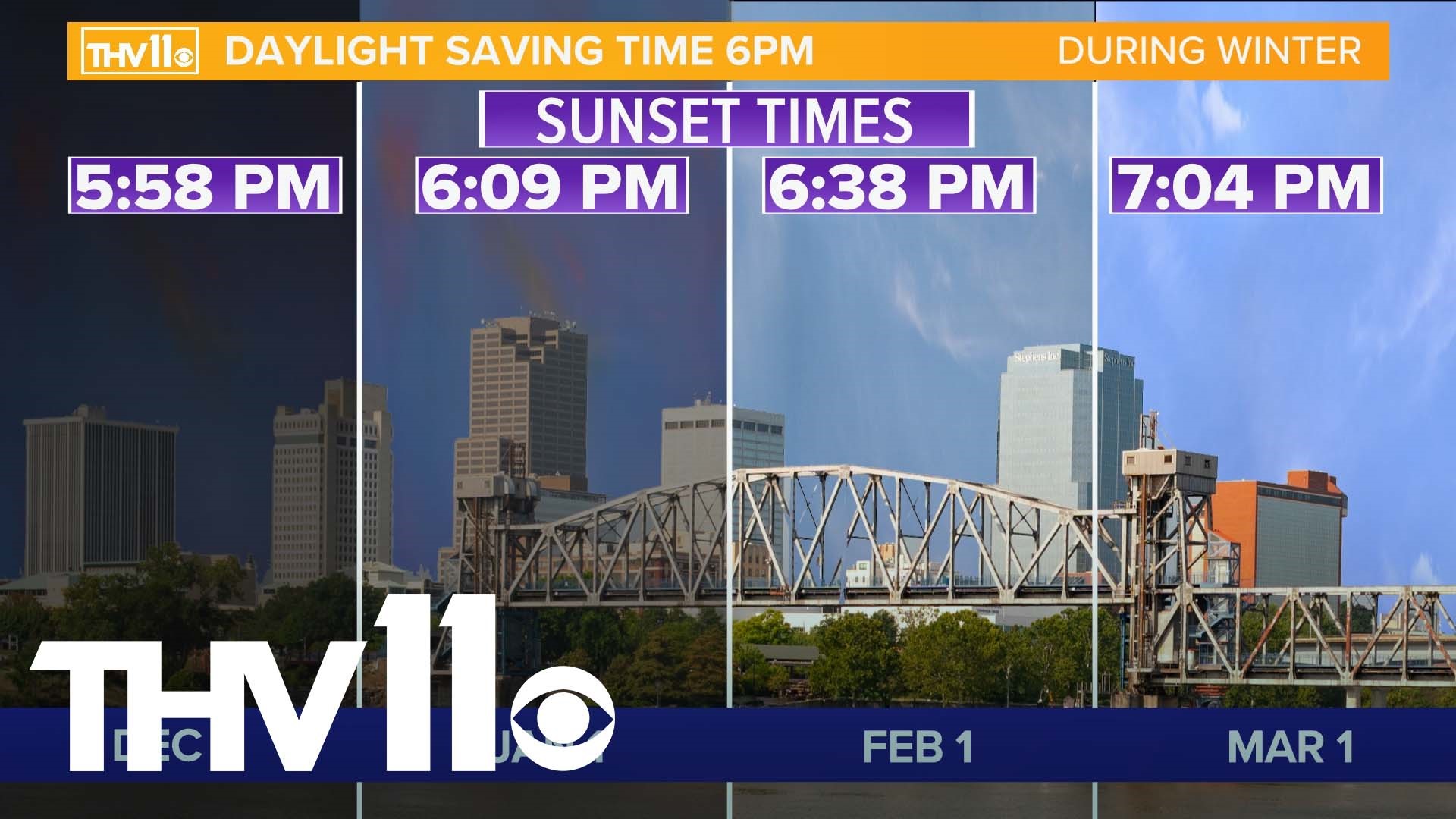LITTLE ROCK, Ark. — You probably don't think about daylight saving time more than twice a year. Obviously, when we spring forward an hour and then when we fall back later in the year.
But, what would you do if you didn't have to worry about the constant back and forth and it simply stayed the same time year-round?
Well, this could actually happen after the U.S. Senate just recently unanimously approved The Sunshine Protection Act-- a bill that would do away with the clock changes starting in 2023.
The bill still has a ways to go before it's officially approved, but we were curious what this could look like for those in Arkansas and how it could impact certain things, ranging from the state's farmlands to your own mental health.
"If that's 2 a.m. in the morning or 2 p.m. in the afternoon, they're gonna do whatever they have to do to get things going," Wes Ward, Secretary of the Arkansas Department of Agriculture, said.
Arkansas is the number one producer of rice, accounting for roughly 40% of the entirety of the United States' rice production.
So, that calls into question-- could the proposed time time negatively impact that?
Probably not. Well, at least according to Ward.
"We've got to be adjustable, flexible, to meet the needs of the industry. To put the food, fiber, fuel, and shelter out there for Arkansas and the consumers of the world," he said.
A bigger question aside from the production of goods, if this bill is approved, how would this change our days each time we woke up?
The biggest difference would be in January and February. You could expect more sunlight in the evening during those months in exchange for far darker mornings.
Instead of the sun rising between 6 a.m. and 7 a.m. most mornings, there would be 67-days where we wouldn't see the sun until after 8 a.m. here in the Natural State.
"When you think about it, we went through COVID, we were all isolated in the house, and then there was all this cloudy days in the winter. It has been brutal,"
With the extra darkness during the earlier part of the morning, you might think it could be negative for your mental health.
Beatrice Klokpah, a mental health professional, said that it's offset by the extra sunshine later in the day.
"Even studies have shown that a natural cure for depressive symptoms is vitamin D, sunlight. I think it's naturally going to cure and alleviate a lot of the seasonal affective disorders that we experience," Klokpah said.
A similar bill to the one brought up by the United States Senate is making it's way through the House. If approved, it makes it's way to the President's desk for final approval.

